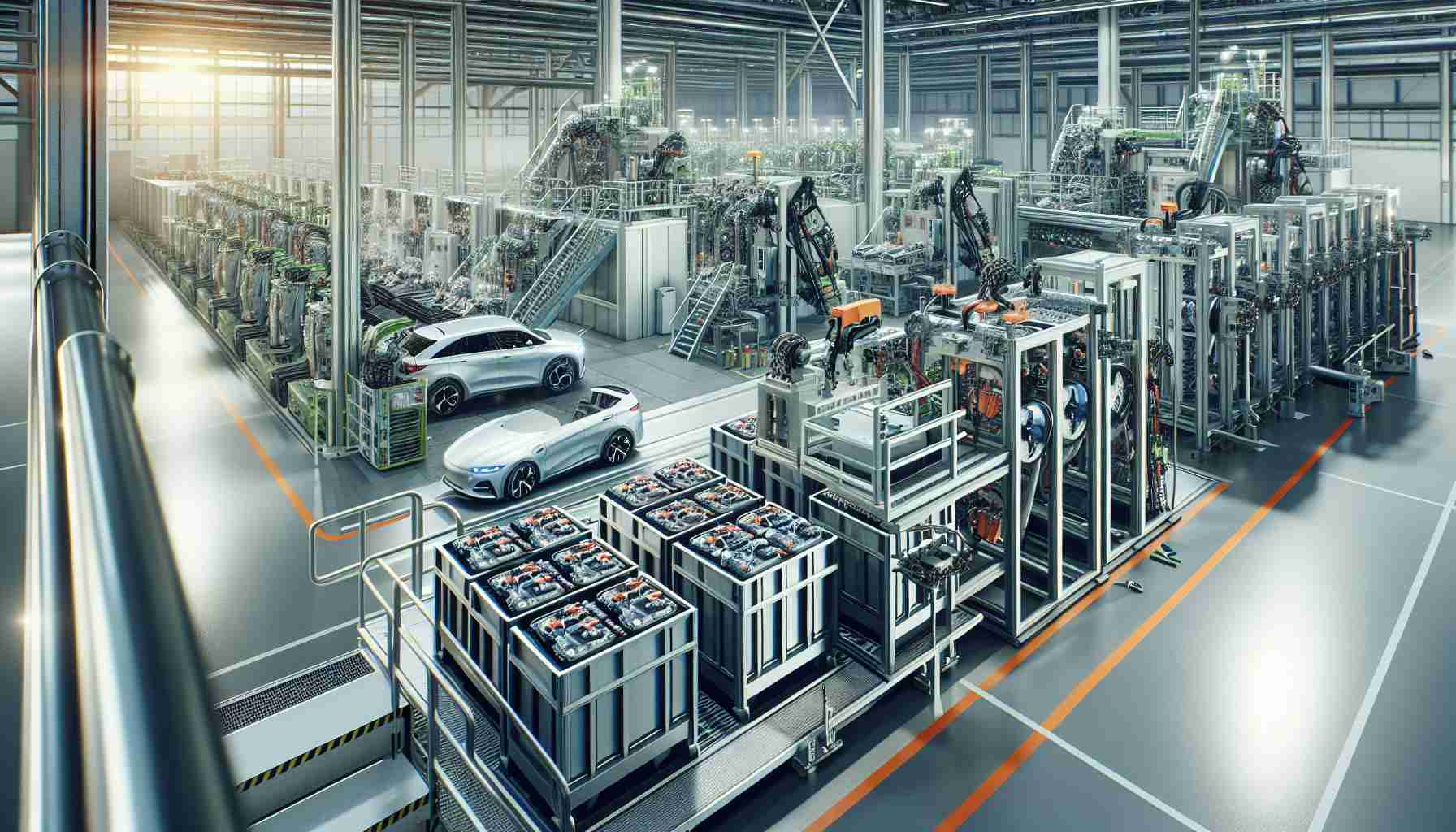Mercedes-Benz has revolutionized the battery recycling landscape with a cutting-edge process that boasts an impressive recycling rate of over 96%. Located in southern Germany, the state-of-the-art plant employs an advanced mechanical-hydrometallurgical approach, setting a new standard in the automotive industry.
The facility encompasses a comprehensive system handling everything from battery module shredding to the recovery of essential raw materials like lithium, nickel, and cobalt. Through a meticulous multi-stage process, Mercedes-Benz successfully extracts these materials from the black mass, ensuring they are primed for utilization in the production of upcoming electric vehicles.
Distinguished by its eco-conscious ethos, the plant operates with minimal energy consumption and waste production, standing in stark contrast to conventional pyrometallurgy methods. Boasting a carbon-neutral operation, the facility features an expansive rooftop adorned with a high-capacity photovoltaic system, underlining Mercedes-Benz’s commitment to sustainability.
With an initial capacity of 2,500 tonnes annually, the plant supplies materials for over 50,000 battery modules destined for new electric Mercedes-Benz models. Partnering with Primobius, Mercedes-Benz has spearheaded a significant investment in this groundbreaking initiative, poised to reshape the future of electric vehicle production.
Mercedes-Benz Unveils New Details on Sustainable Battery Recycling
In addition to the impressive recycling rate of over 96% achieved by Mercedes-Benz’s cutting-edge battery recycling plant in southern Germany, there are other relevant facts that shed light on the innovation of their process. The company has implemented a closed-loop approach that aims to maximize the recovery of valuable materials while minimizing environmental impact.
Key Questions and Answers:
1. What innovations have Mercedes-Benz introduced to streamline the recycling process?
Mercedes-Benz has incorporated advanced automation and robotics to enhance the efficiency of battery module dismantling and material extraction. This automation not only accelerates the recycling process but also ensures higher precision in recovering raw materials like lithium, nickel, and cobalt.
2. How does Mercedes-Benz address potential challenges in battery recycling, such as safety and regulatory compliance?
The company has implemented strict safety protocols and compliance measures to manage the handling of hazardous materials effectively. Furthermore, continuous monitoring and auditing processes are in place to ensure the plant’s operations meet or exceed regulatory standards.
Advantages and Disadvantages:
Advantages:
– Environmental Sustainability: By recovering essential raw materials from used batteries, Mercedes-Benz contributes to reducing the need for new mining activities, thereby conserving natural resources.
– Energy Efficiency: The plant’s minimal energy consumption and integration of renewable energy sources demonstrate a commitment to reducing carbon emissions associated with the recycling process.
Disadvantages:
– Scalability Challenges: As the demand for electric vehicles continues to grow, ensuring the scalability of sustainable battery recycling processes presents a significant challenge for manufacturers like Mercedes-Benz.
– Cost Implications: While investing in sustainable recycling is beneficial in the long term, the initial capital outlay and operational costs can pose financial challenges for companies looking to implement similar programs.
Key Challenges or Controversies:
One of the primary challenges associated with sustainable battery recycling for future electric vehicles is the development of standardized processes and regulations across the industry. Without clear guidelines, inconsistencies in recycling practices may arise, leading to varying environmental impacts and resource inefficiencies.
Suggested Related Link:
– Mercedes-Benz Official Website
